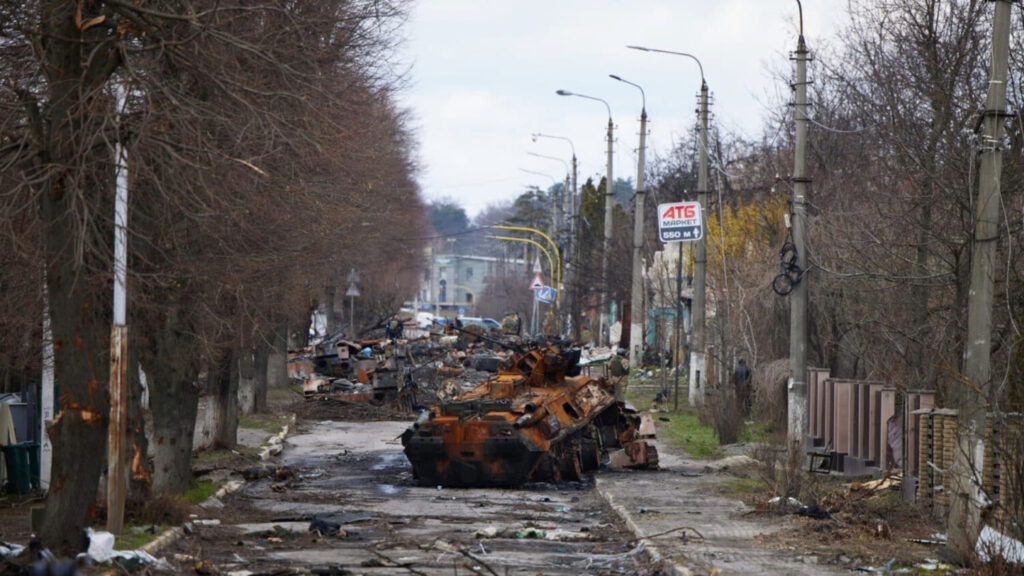The Weaponization of Disinformation in Modern Geopolitics
In an era defined by rapid technological advancement and instantaneous global communication, information has become not just a resource but also a battleground. Foreign state-sponsored disinformation campaigns—especially those orchestrated by Russia—have emerged as potent, low-cost tools for geopolitical influence and social disruption. Moreover, these efforts exploit the global reach of digital platforms, erode democratic norms, and blur the boundaries between information warfare and traditional statecraft. This essay argues that disinformation has evolved into a strategic weapon, transforming the digital information environment into a contested domain akin to land, sea, air, space, and cyberspace. Therefore, understanding the structure, intent, and consequences of these campaigns is vital for developing effective countermeasures.
Disinformation as a Strategic Tool
Disinformation, in contrast to misinformation, is the deliberate dissemination of false information to deceive or manipulate an audience. Similarly, Russia’s deployment of disinformation has been especially systematic and adaptive, integrating propaganda techniques rooted in Soviet-era doctrine with modern digital tools. Additionally, according to Rid (2020), this approach constitutes “active measures”—covert and semi-covert operations designed to influence political outcomes, sow discord, and undermine adversaries from within.
The State Department’s 2019 report, Weapons of Mass Distraction, highlights the architecture of these operations. Furthermore, they rely on a combination of state-controlled media (e.g., RT and Sputnik), proxy outlets, covert social media accounts, and sympathetic influencers to amplify false narratives. Consequently, these strategies reflect a broader doctrine of “information confrontation” in Russian military thinking, where the control of information is as critical as conventional weaponry in achieving strategic goals.
The Russian Model: Biohazardous Disinformation
The concept of disinformation as a “biohazard” underscores its infectious nature. Like a virus, disinformation spreads invisibly, mutates rapidly, and exploits the vulnerabilities of its host societies. Thus, the NDU Press article notes, Russia’s campaigns are tailored to the sociopolitical fault lines of target countries—race, immigration, economic inequality, and vaccine hesitancy, among others. Meanwhile, this precision targeting is facilitated by data analytics and AI-driven algorithms that allow for hyper-personalized influence operations.
Similarly, the 2016 U.S. presidential election marked a watershed moment. Russian actors, notably the Internet Research Agency (IRA), orchestrated extensive efforts to polarize voters through false personas, divisive memes, and coordinated inauthentic behavior. Therefore, these tactics were not merely aimed at supporting one candidate but at degrading trust in democratic institutions and electoral integrity itself.
Beyond the West: A Global Battlefield
While Western democracies have been prominent targets, Russian disinformation also penetrates vulnerable states in Eastern Europe, Africa, and Latin America. As a Journal of Global Security Studies article points out, states with weak media infrastructure, low public trust, and limited digital literacy are especially susceptible. Therefore, Russian narratives often depict the West as decadent, imperialist, and hypocritical while promoting an image of Russia as a stabilizing force offering “alternative truths.”
Furthermore, these campaigns align with broader geopolitical objectives: reducing Western influence, fragmenting transatlantic alliances, and promoting multipolarity. Meanwhile, disinformation becomes both a tactical and strategic tool, sowing immediate confusion while reshaping the global narrative ecosystem over time.
Evidence-Based Countermeasures: A Path Forward
Given the scope and sophistication of foreign disinformation campaigns, countering them requires a multi-pronged, evidence-based approach. The Carnegie Endowment’s 2024 policy guide emphasizes three pillars: resilience, transparency, and deterrence.
- Resilience involves enhancing societal immunity to disinformation. This includes media literacy education, public awareness campaigns, and investment in independent journalism.
- Transparency requires holding platforms accountable for the algorithmic amplification of false content and enforcing robust content labeling standards.
- Deterrence suggests imposing costs on perpetrators through sanctions, cyber countermeasures, and diplomatic censure.
However, as the Brill article argues, strategies must also respect democratic values and avoid sliding into counterpropaganda or censorship. Moreover, democratic resilience hinges not only on defensive capabilities but also on preserving open societies where truth can still compete in the marketplace of ideas.
The Ethical Dilemma of Countering Disinformation
Efforts to combat disinformation are fraught with ethical challenges. Overregulation risks infringing on free speech, while underregulation allows malign actors to exploit the openness of democratic systems. Thus, the balance between security and liberty is especially delicate when interventions involve AI moderation, algorithmic transparency, and public-private partnerships.
Moreover, not all disinformation is foreign. Domestic political actors frequently mimic foreign tactics, further muddying the waters. This convergence complicates attribution, response, and public understanding. Therefore, an effective counter-disinformation strategy must distinguish between foreign malign influence and domestic political expression, even when both use similar tools.
Disinformation and the Future of Global Governance
The weaponization of disinformation not only threatens individual nations but the international order itself. It erodes the foundational trust required for multilateralism, elections, and human rights advocacy. In this context, disinformation operates like a slow-acting toxin, undermining democratic norms, degrading institutional authority, and amplifying geopolitical fragmentation.
Additionally, international cooperation, akin to frameworks for cybercrime and nuclear nonproliferation, is urgently needed. Democracies must collaborate to share intelligence, establish norms for digital conduct, and hold state actors accountable for information warfare. Furthermore, just as middle powers in diplomacy (as discussed in the model article) contribute by upholding norms and facilitating dialogue, so too must coalitions of states lead the fight against digital subversion.
References
Briggs, R. (2019). Weapons of Mass Distraction: Foreign State-Sponsored.
Disinformation in the Digital Age. U.S. Department of State Global Engagement Center.
Retrieved from https://www.state.gov/wp–content/uploads/2019/05/Weapons–ofMass–Distraction–Foreign–State–Sponsored–Disinformation–in–the–Digital–Age.pdf
Carnegie Endowment for International Peace. (2024). Countering Disinformation.
Effectively: An Evidence-Based Policy Guide. Retrieved from https://carnegieendowment.org/research/2024/01/countering–disinformationeffectively–an–evidence–based–policy–guide?lang=en
NDU Press. (2020). Social Media Weaponization: The Biohazard of Russian.
Disinformation Campaigns. Retrieved from https://ndupress.ndu.edu/Media/News/News–Article–View/Article/2420792/socialmedia–weaponization–the–biohazard–of–russian–disinformation–campaigns/
Pamment, J., & Whine, M. (2023). Hybrid Threats and the Politics of Disinformation: A Transatlantic Dialogue. Security and Human Rights, 29(1–4), 3–22. https://brill.com/view/journals/shrs/29/1–4/article–p3_3.xml
Rosenbach, E., & Mansted, K. (2022). Can Democracy Survive Disinformation? Journal of Global Security Studies, 7(4), ogac016. https://academic.oup.com/jogss/article/7/4/ogac016/6647447



